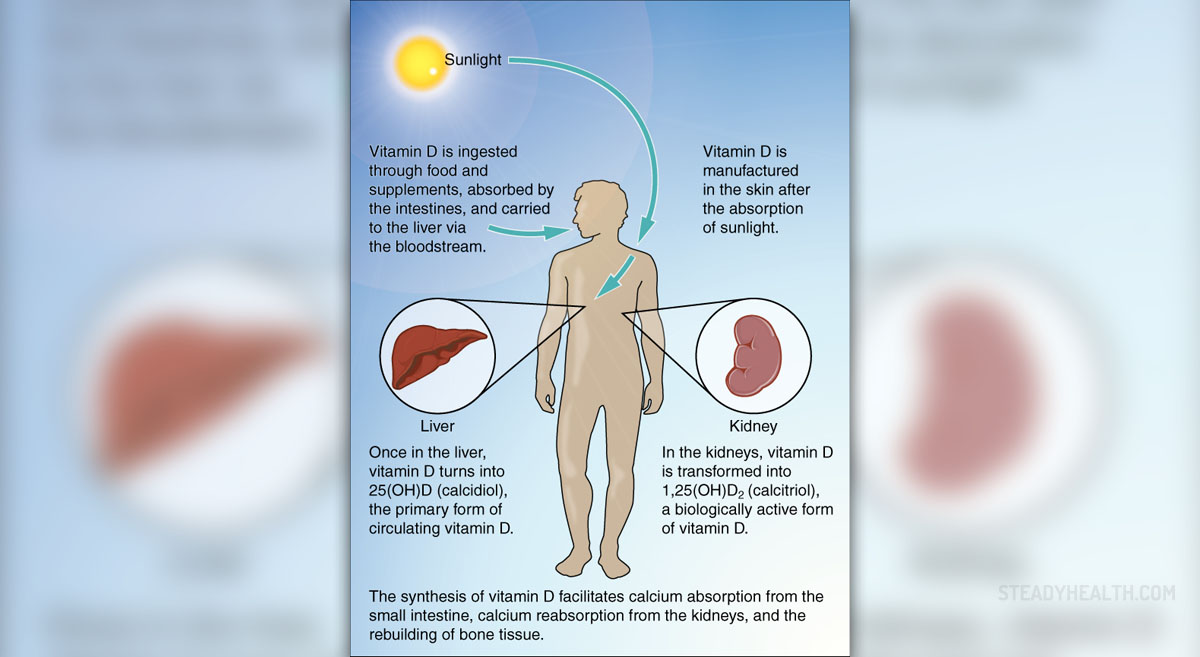
Deficiency of vitamin D can have catastrophic consequences if not taken care of properly. Vitamin D can be synthesized by an adequate exposure to sunlight. This vitamin is essential for the health of bones because it regulates the levels of calcium in the human body. Deficiency of vitamin D can be cause by not being exposed to sunlight enough. This usually happens to people who have indoor or night shift jobs. Sometimes a person can use a sunscreen that is too strong and prohibits the proper manufacture of vitamin D. If a person has too much melanin in the skin it may slow down the production of vitamin D significantly.
This usually affects people with a naturally darker skin tone or a heavy tan. Vitamin D gets processed into hormones in the kidneys and the liver which means that people who have problems with proper functioning of these internal organs may have troubles with deficiency of vitamin D as well. This may occur even if they have adequate levels of the vitamin in the blood. Certain rare types of hereditary disorders can also lead to vitamin D deficiency. As a person gradually grows old, he or she requires more and more supplies of vitamin D for a proper maintenance of the bone strength and health. Aging process greatly increases the required daily intake of the vitamin D. Obese persons may find it much more challenging to produce required amounts of vitamin D. The excess weight also requires much stronger bones to support the body properly which gradually leads to a deficiency.
Deficiency of vitamin D is usually characterized by some diseases and conditions. Rickets, osteomalacia and osteoporosis are the most common because they all come from softening of the bones caused by the vitamin deficiency. In adequate supply of calcium comes from inadequate sources of vitamin D. The deficiency may result in bone fractures decreased bony density and even crippling deformations. There are also other symptoms that indicate a vitamin D deficiency.
Those include tuberculosis, diabetes, low levels of calcium in the blood, high blood pressure, depression, chronic fatigue, periodontal diseases, bone pain, muscle pain, joint pain, bowed limbs and a knock-kneed appearance. Those who suspect a vitamin D deficiency should ask for professional medical attention and run some tests in order to confirm and precisely determine any nutritional problems. This deficiency can be corrected by increasing the exposure to sunlight and adjusting the daily diet in order to ingest more food that is rich in vitamin D. One can also use supplements and multivitamins.

















Your thoughts on this
Loading...